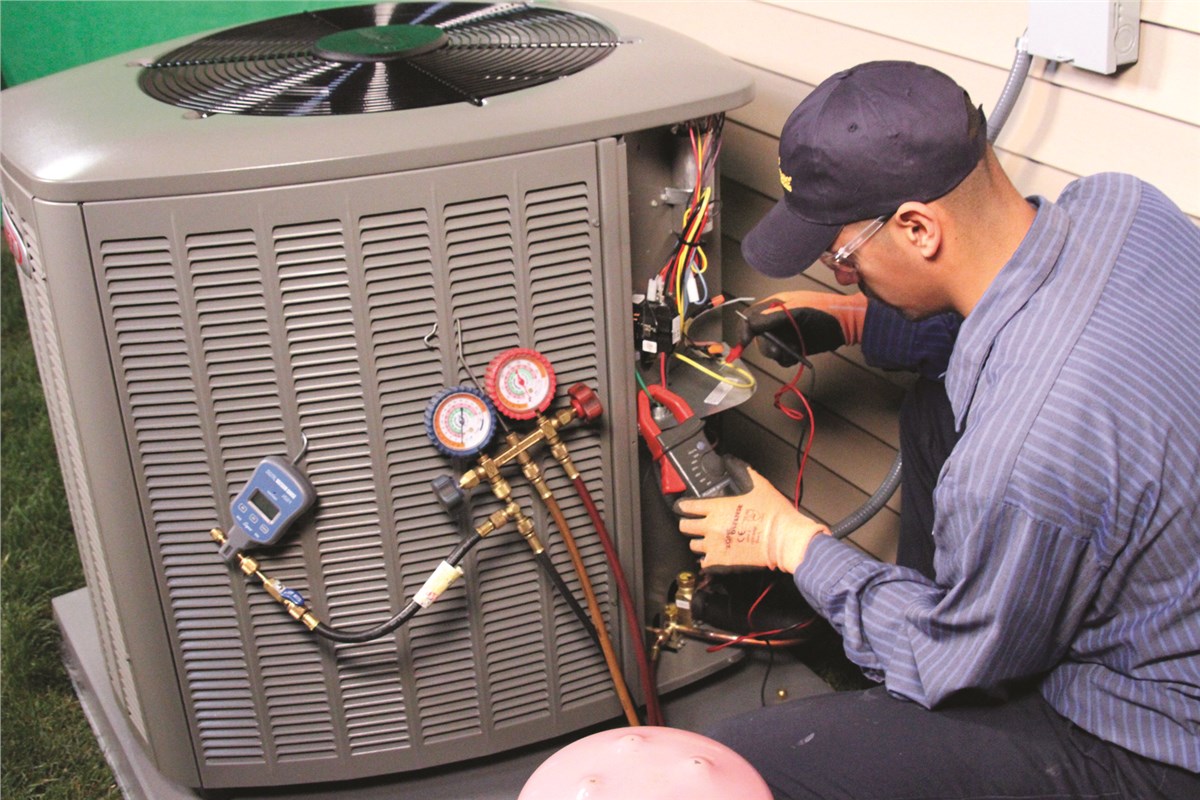In today's rapid world, having a pleasant living or home space is important for both output and comfort. Here is where HVAC systems serve a crucial role. Knowing how to optimize your HVAC system can make a significant difference in your satisfaction, expenses, and overall indoor atmosphere. Whether you are a resident wanting to improve your climate regulation performance or a company leader wanting to forge a positive office, familiarizing yourself with the nuances of your HVAC system is essential.
This guide will guide you through all the information you need to understand about HVAC systems, from introductory concepts to expert strategies for improvement. We will discuss typical challenges and their remedies, maintenance suggestions for keeping your system functioning optimally, and how to pick the best system for your unique requirements. With proper understanding, you can guarantee your HVAC system plays a role to a wholesome and comfortable atmosphere while also being efficient in energy use.
Grasping Heating, Ventilation, and Air Conditioning
HVAC represents a comprehensive system. It is a complex arrangement made to deliver environmental comfort and adequate indoor air quality. Understanding how such systems work can assist homeowners choose wisely about their heating and cooling needs. A properly functioning HVAC system is essential for keeping a comfortable living environment throughout the year.
At its heart, an HVAC system works by using various components, including heaters, air conditioners, heat pumps, and ventilation systems. These parts work collaboratively to regulate indoor temperature and humidity while maintaining proper ventilation. Understanding how these components interact can assist you resolve common problems and improve system functionality. This link emphasizes the importance of understanding both the individual parts and the entire system.
Consistent maintenance is essential to the durability of HVAC systems. Routine checks and timely repairs can stop minor issues from becoming major complications, ensuring that your system functions properly and correctly. By acquainting yourself with the basics of your HVAC system, you can make preemptive steps to improve its performance, save on energy costs, and enhance overall comfort in your home.

HVAC care and problem-solving
Frequent upkeep is vital for ensuring your heating and cooling system works efficiently and performs for a long time. This entails tasks such as changing air filters, washing the condenser and evaporator coils, and inspecting the refrigerant levels. click over here helps maintain good airflow but also boosts indoor air quality. Scheduling annual certified inspections can help identify small issues before they turn into serious problems, saving you time and financial resources in the end.
One of the most common issues that HVAC systems encounter is poor airflow, which can be due to blocked vents or ducts, a dirty filter, or even malfunctioning fans. If you notice uneven temperatures in multiple rooms, it is crucial to check the airflow and ensure that nothing is hindering the vents. In some cases, you may need to recalibrate the thermostat to improve performance. Paying attention for unusual noises from the system can also signal potential problems that need immediate attention.
When conducting HVAC troubleshooting, it is critical to know the right time to repair and when to replace. If your system is often breaking down, is over ten years old, or demands costly repairs, it may be more economical to invest in a new system. Be aware of the warranty terms and service options provided for your system, and explore modern solutions that improve energy efficiency. Investing in smart technology can also give more control over your system and help reduce energy bills.
Energy Conservation and Advancements in Heating, Ventilation, and Air Conditioning
The HVAC industry has seen notable progress in energy optimization, driven by the requirement for eco-friendly solutions and affordable heating and cooling. Modern systems are designed to reduce power usage while enhancing comfort. Innovations such as dynamic speed compressors, advanced heat exchangers, and better insulation materials contribute to reduced energy costs and superior performance. These innovations allow heating and cooling systems to respond to varying environmental conditions, ensuring maximum efficiency throughout the year.
Connected heating and cooling systems have emerged as a game-changer in energy efficiency management. These systems can hook to the web, allowing homeowners and companies to track and manage their heating and cooling units from anywhere. Features such as time management, adaptive algorithms, and compatibility with automated home systems enable users to make intelligent decisions about power consumption. By optimizing settings and usage patterns based on current information, these systems can considerably reduce electricity costs and monthly charges.
Investing advanced HVAC solutions not only improves comfort but also advances eco-friendly aims. Efficient heating and cooling systems often qualify for rebates and benefits, making them an desirable option for property owners. Additionally, advances like solar-assisted heating and cooling systems and geothermal systems showcase the potential for utilizing renewable energy sources. As the focus on sustainability continues to grow, embracing these innovations will be essential for both home and business applications in the pursuit of energy conservation.
